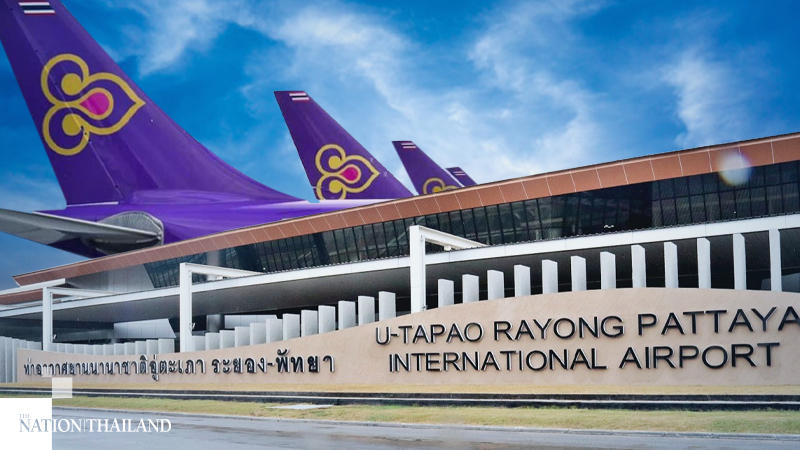
The development of U-Tapao Airport and Eastern Aviation City is set to take off after U-Tapao International Aviation Co Ltd (BBS Group) signed a joint investment agreement with Eastern Economic Corridor Office of Thailand (EECO) on June 19, with the goal of making U-Tapao an aviation hub.
EECO has revealed that the Covid-19 outbreak has had only a slight impact on the aviation city project. Experts in the aviation industry who are advising the office said that regardless of what people say travel is an inevitability.
Many parties estimate that within two years from now, air travel will return to normal. At the same time, transportation is becoming more important and air transportation will return soon, so the aviation city is still important.
The development of the U-Tapao Airport will take four years. When the construction is completed, it will be a time when air travel would be expanding, an important opportunity for the aviation city.
The crisis of Covid-19 will make the aviation business model change from using very large aircraft to the use of medium-sized jets with more flying frequency. So, the airport's detailed design may be adjusted based on the frequency, the size of the plane and changing customer behaviour.
Meanwhile, there have been no bids for the proposed maintenance, repair and overall centre in the first round yet, but Thai Airways International plc has to build this aircraft repair centre since it has demolished the old Map Ta Phut to enlarge the runway area of the airport.
However, in the EEC, there will be other aircraft repair centres that will be open for bidding. There are still many private companies interested. From the analysis, it is seen that air travel must return to normal and Thailand will be an important aviation link in the region. The growth of the aviation industry in the Asia-Pacific region will make maintenance in the region more valuable than returning to Europe or the United States. However, the plan may be somewhat delayed due to the virus.
In terms of attracting investment in high-tech industries, although Thailand has many strengths such as infrastructure, communications infrastructure in technology, 5G network that will be used in 50 per cent of the EEC in 2021 and accelerating the development of highly skilled personnel, there is a weakness in international trade and investment agreements that are less than competitive, especially the Comprehensive and Progressive Agreement of Trans-Pacific Partnership and the Thai-European Free Trade Area.
The EECO officer said that Investors asked a lot about the time frame of action, especially on the EU FTA because it is a very important market and Vietnam has already signed these agreements
According to discussions between EECO and investors coming into the target industry, they want to know about highly skilled workers to support advanced technology. Thailand has started to develop skilled labour to support future investments. The free trade area is a secondary issue that investors asked about.
The 4-5 industries that came to consult with EECO are mostly in the biological industry and the new advanced material technology industry, such as the use of sugarcane to produce fibres for durable use in the high-tech industry, which involves high technology..
In addition, EECO has worked with Japanese high-tech companies who are going to move out of China while the Board of Investment has constantly revised the package to pull more investment.


